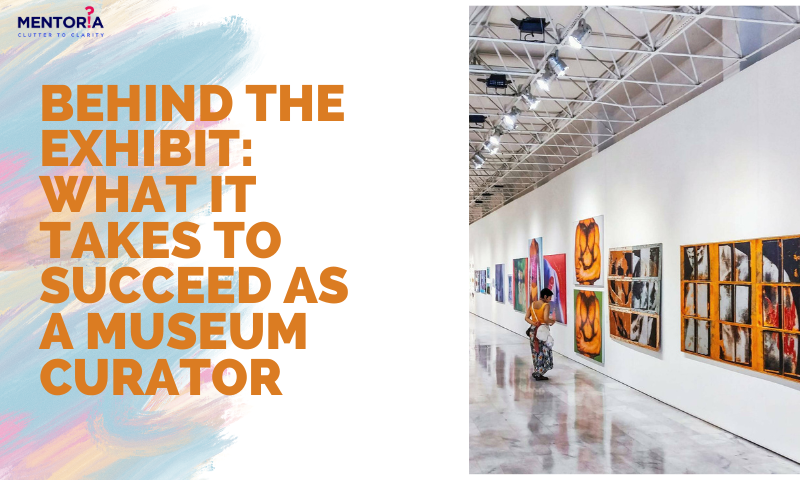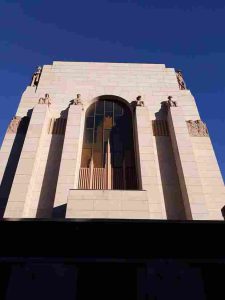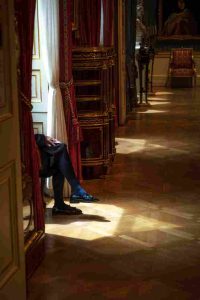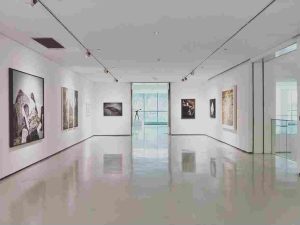Behind The Exhibit: What It Takes To Succeed As A Museum Curator

In the enigmatic world of museums, where history and art converge in a captivating dance, there exists a gatekeeper of knowledge and curator of wonders—the illustrious museum curator. Behind the scenes, these masterminds weave together the threads of the past, present, and future, crafting exhibits that leave visitors spellbound and hungry for more. But what does it take to ascend to this throne of curatorial greatness? Prepare to embark on a quest for answers as we unveil the qualifications essential for a triumphant career as a museum curator. From a thirst for knowledge that rivals the most ardent scholars to a creative flair that rivals the great artists themselves, the journey to curatorial success is as awe-inspiring as the masterpieces they protect.
Understanding The Role Of A Museum Curator
Museum curators are the masterminds behind the magic of museums. They are responsible for selecting, acquiring, preserving, and interpreting artefacts and artworks for public display. A curator’s keen eye, research skills, and creativity breathe life into exhibits, engaging visitors and fostering a deeper appreciation for history and art. A successful career as a museum curator requires a blend of academic qualifications, practical experience, and a passion for storytelling. In fact, overall employment of archivists, curators, and museum workers is projected to grow 12 percent from 2021 to 2031, much faster than the average for all occupations. About 4,700 openings for archivists, curators, and museum workers are projected each year, on average, over the decade.
Qualifications For Becoming A Museum Curator
- Educational Background: A strong educational foundation is crucial for aspiring museum curators. Most curators hold at least a master’s degree in a relevant field such as museum studies, art history, archaeology, anthropology, or history. These specialised degrees provide a comprehensive understanding of museum practices, collection management, exhibition curation, and art conservation. Additionally, coursework in research methodologies and cultural heritage preservation equips curators with essential skills for their role.
- Research Acumen: Successful curators possess exemplary research skills. They delve deep into historical archives, art collections, and cultural resources to discover and authenticate artefacts or artworks. By immersing themselves in extensive research, curators gain the insights needed to present a cohesive and engaging narrative within their exhibitions. A keen eye for detail, historical context, and cultural significance allows curators to select artefacts that align with the museum’s vision and mission.
- Hands-On Experience: Practical experience is invaluable for curators aiming to excel in their careers. Internships or volunteer opportunities at museums, galleries, historical institutions, or cultural organisations offer aspiring curators a chance to work closely with professional curators and other museum staff. This hands-on experience provides exposure to various curatorial tasks, including cataloguing, conservation, exhibition planning, and public engagement. Moreover, it helps aspiring curators build a network of industry contacts and gain insight into the day-to-day responsibilities of a curator.
- Specialisation and Expertise: While a broad knowledge of art and history is essential, successful curators often choose to specialise in particular areas. By focusing on specific periods, artistic movements, cultural themes, or regions, curators develop expertise in their chosen field. This specialisation enables curators to curate exhibitions that are not only informative but also deeply insightful and compelling. A specialised approach showcases a curator’s passion and dedication to their craft, making them valuable assets to museums seeking to create focused and meaningful exhibits.
- Communication Skills: Effective communication is a cornerstone of a curator’s role. Curators must skillfully convey complex historical and artistic information to diverse audiences, including visitors, scholars, donors, and media representatives. Strong writing skills are crucial for developing informative exhibit labels, catalogues, and educational materials. Additionally, curators often engage in public speaking, offering guided tours, lectures, and workshops. Excellent communication abilities enable curators to connect with audiences, making their exhibits accessible and engaging for all.
- Technological Proficiency: In today’s digital era, curators must be tech-savvy to keep pace with evolving museum practices. Proficiency in multimedia tools, virtual exhibits, and digital storytelling enhances a curator’s ability to create innovative and interactive museum experiences. Embracing digital platforms allows curators to engage with wider audiences and enrich the visitor experience. Whether integrating augmented reality features or crafting interactive touchscreens, technological prowess empowers curators to transcend traditional exhibit boundaries and offer immersive journeys through art and history.
The Art Of Curating: A Day In The Life Of A Museum Curator
Curating is a meticulous and exciting process that unfolds in various stages, each requiring a curator’s expertise and creative touch.
Research and Collection Building:
- Conducting extensive research on potential artefacts or artworks to enrich the museum’s collection.
- Building connections with collectors, donors, and auction houses to acquire significant pieces.
- Nurturing relationships with artists, historians, and scholars for collaborations and loans.
Exhibition Planning:
- Crafting a captivating storyline and thematic concept for the exhibit.
- Collaborating with designers and conservationists to ensure the preservation and display of artefacts.
- Creating a cohesive layout and flow that guides visitors through a transformative experience.
Artefact Preservation:
- Overseeing the conservation and restoration of delicate artworks and historical artefacts.
- Implementing measures to safeguard artefacts from environmental and handling risks.
Public Engagement:
- Conducting guided tours, lectures, and workshops to engage and educate visitors.
- Participating in media interviews and public events to promote the museum’s exhibits.
The Ever-Evolving Landscape Of Museum Curators
Museum curators are at the forefront of preserving our cultural heritage, and the field continues to evolve to meet the demands of the digital era.
- Embracing Virtual Exhibits: In recent years, virtual exhibits have gained popularity, allowing curators to reach global audiences beyond physical museum walls. The integration of interactive technologies enhances the visitor experience.
- Diversity and Inclusion: Curators play a vital role in promoting diversity and inclusivity in museum exhibits, incorporating narratives from underrepresented communities to foster a more inclusive understanding of history and culture.
- Environmental Sustainability: With growing awareness of environmental conservation, curators are adopting eco-friendly practices in artefact preservation and exhibit design.
Paving Your Path To Curatorial Success With Mentoria
Becoming a museum curator is a rewarding and fulfilling career path that requires a unique blend of qualifications and skills. As you embark on your journey to curatorial success, keep these essential qualifications in mind to stand out in the competitive field of museum curation.
As you develop your qualifications, don’t underestimate the power of mentorship and guidance. Mentoria is here to support you on your journey to becoming a museum curator. Our experienced career counsellors can provide personalised coaching, helping you navigate the curatorial world with confidence and knowledge. Whether you’re seeking advice on educational choices, career opportunities, or networking strategies, Mentoria is your partner in curatorial success.
So, if you have a passion for art, culture, and storytelling, seize the opportunity to embark on a rewarding career as a museum curator. Equip yourself with the qualifications and skills needed to curate captivating exhibitions that leave a lasting impact on the world.









